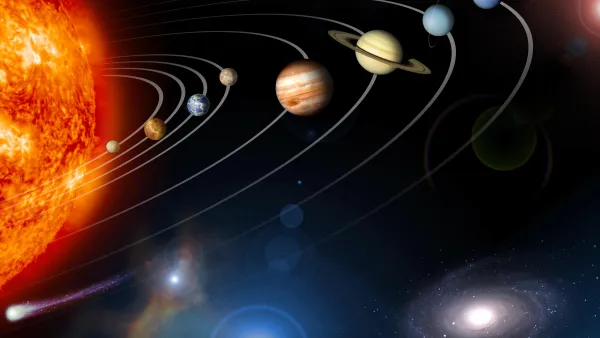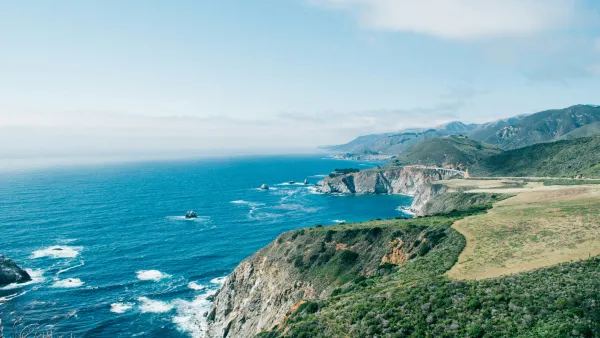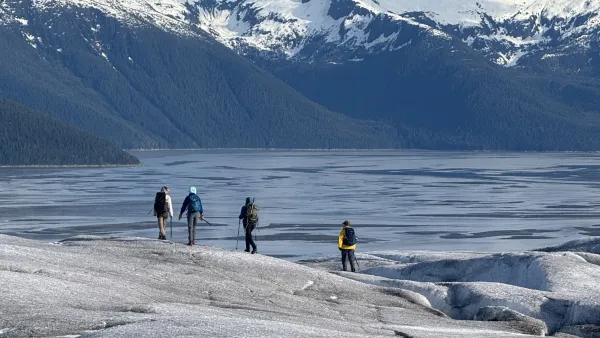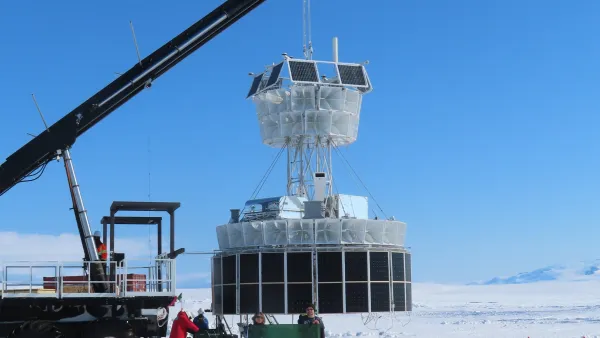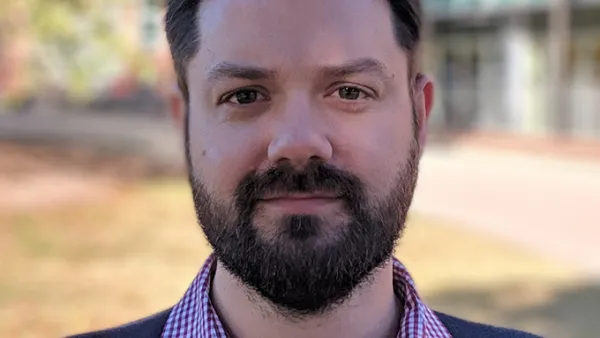During a fall retreat for faculty fellows, Brad Jolliff shared recent updates and new directions to promote the space sciences at WashU and beyond.
The McDonnell Center for the Space Sciences (MCSS) hosted a retreat at Tyson Research Center for MCSS faculty fellows on November 11. The event included an update by Brad Jolliff, Center director and the Scott Rudolph Professor of Earth and Planetary Sciences (EPS), on recent activities and discussions about strategic directions and transformational ideas being considered. Professors Henric Krawczynski and Slava Solomatov, respective chairs of Physics and EPS, also gave updates about their departments and shared plans for the future. These presentations led to discussions on how the MCSS can support new directions and major projects to further expand the presence of WashU in the space sciences arena.
For almost 50 years, MCSS has supported space-related research in the departments of Physics and Earth and Planetary Sciences, future work through seed funding for research projects, graduate and postdoctoral fellowships, visiting scientists, and many other activities. Jolliff reviewed the most recent highlights of the Center, with research spanning the structure of the Universe, stars, planets, meteorites, the Moon and Earth, and the origin of the solar system. There are many opportunities for student involvement in classes, research, and exploration ranging from investigations of samples from different objects in the solar system, to high-altitude balloon launches, to experiments on NASA spacecraft missions.
Over 100 members comprise the MCSS, including faculty fellows, research staff, postdocs, graduate students, affiliates, and visiting scientists. The Center continues to grow with recent additions of faculty members in both departments, including Professors Masteller and Michaelides in EPS and Professors Nicola, Yuan, and Chen in Physics. These professors have further expanded the research efforts of the Center in new directions, especially in big data and other areas connected with Arts & Sciences’ Digital Transformation Initiative.
Members continue to receive recognition and support for their outstanding work through research awards such as Professor Parai’s NSF CAREER Award and Professor Piarulli’s DOE Early Career Award. Faculty have also earned funding for major projects, such as Professor Rauch’s new $20 million TIGERISS experiment on the International Space Station to measure the abundances of ultra-heavy galactic cosmic rays.
In 1975, James S. McDonnell started an endowment providing the inaugural director of MCSS, Robert M. Walker, an opportunity to bring world-class space science research to Washington University. Years later, the Danforth Foundation increased the endowment, and today the Center operates under annual income that supports eight faculty lines (four in physics and four in EPS), as well as graduate and postdoctoral fellowships, distinguished lectures, and new pathways to extend the space sciences at WashU, such as a significant increase in support for summer research undergraduate internships. The Center is moving forward with plans to offer new research opportunities for students and to broadly promote the space sciences at WashU and beyond.
At the November 11 retreat, MCSS faculty fellows had an opportunity to visit the new Tyson Observatory, an optical telescope that will support student research experiences and field trips. Professor Buckley has spearheaded the observatory renovation along with Professors Manel Errando and Mike Krawczynski. The Tyson Observatory is an awesome resource for Washington University.
Want to be inspired? Want to search for answers that scientists have grappled with for years? Check out the MCSS website or contact us via email. We are always looking for students who want to solve big problems and be involved in cutting-edge research.
